How Sanctuaries Make Right What’s Wrong
In a time of mass extinction that’s been brought about by human exploitation and can no longer be stopped, what should we do?
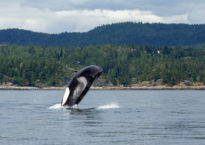
In a time of mass extinction that’s been brought about by human exploitation and can no longer be stopped, what should we do?
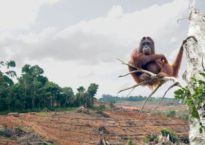
Why would a supposedly “intelligent” species behave in a way that’s bringing about a mass extinction – one that will likely take us down along with so many other animals?

How we “view” other animals (from a position of privilege and exploitation), and how our behavior toward them and toward the planet has led to an irreversible, mass extinction.
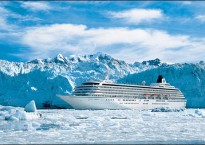
What do you call a luxury ship with 1,070 people paying up to $120,000 each for a cruise through the once-impenetrable Northwest Passage?
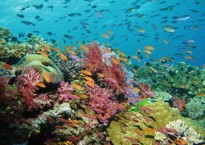
A classic case of international greed in the name of economic “progress” that’s destroying vast numbers of animals and their homes.

World-renowned climate scientist Dr. James Hansen is predicting a rapid ocean rise of 20 to 30 feet – enough to submerge every coastal city on Earth – along with catastrophic shutting down of ocean circulation, leading to massive storms and other climate upheavals. And the key word is RAPID.

Thomas Berry writes about the real choices we face this year and the Great Work upon which we should be embarking.

The recognition is finally dawning that Planet Earth is in deep trouble. In terms of the five stages of coping with one’s impending demise, we seem to be moving, as a society, from Stage One: Denial, to Stage Two: Anger.
Their reign lasted roughly 170 million years, and the latest news is that what finally did them in wasn’t simply the notorious asteroid that slammed into…
Derrick Jensen is one of the few people you’ll come across who are passionate about both the “environment” and all the living creatures. (Climate change activists…
At the end of her talk at the Seattle Town Hall about her book The Sixth Extinction, Elizabeth Kolbert takes questions from the audience. The final…
How do you talk about the end of the world on a comedy show? That was the challenge for Jon Stewart when he invited Elizabeth Kolbert…
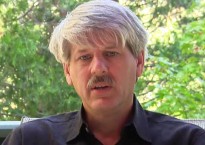
By now, more people are at least beginning to understand that we have a serious problem with climate change. Scientists used to tell us that we…
Not sure what we mean by the Sixth Mass Extinction? What were the other five? Is there really a sixth one going on? Will we all…
A high school student who’s giving a presentation to her class about sport hunting asked if I’d be up for answering some brief questions on the…
Britain’s Astronomer Royal is setting up an organization to study the risks posed to ourselves and our planet by modern technology.
“Nature has value in its own right,” he says. “So it’s imperative to do what we can to preserve the natural world, and this has to go beyond any human self-interest.”
The ivory trafficking business is the #1 item at the 178-nation Conference on International Trade in Endangered Species (CITES) that’s being held this week and next in Bangkok, Thailand.
But don’t hold your breath for any significant action.
This smiling fellow, known as Thalattoarchon saurophagis, was cruising the oceans about 244 million years ago in what are now the mountains of central Nevada, snapping up smaller fish for dinner. And that, we’re told, is good news. Here’s why.
A few months ago, a friend of mine, Janet, asked me if I thought the world would really end on December 21st. I asked her why she would be more concerned with a supposed “Mayan apocalypse” than with the much more down-to-earth reality that we’ve entered a time of growing ecological disaster.
“It’s easier to imagine the Mayan apocalypse,” Janet said. “After all, you know it’s imaginary, like zombie apocalypses and all that good stuff, so it takes your mind off the real thing.”
Ring-tailed lemurs on Madagascar More than 400 plants and animals have been added to the “Red List” of species that are considered at risk of extinction…